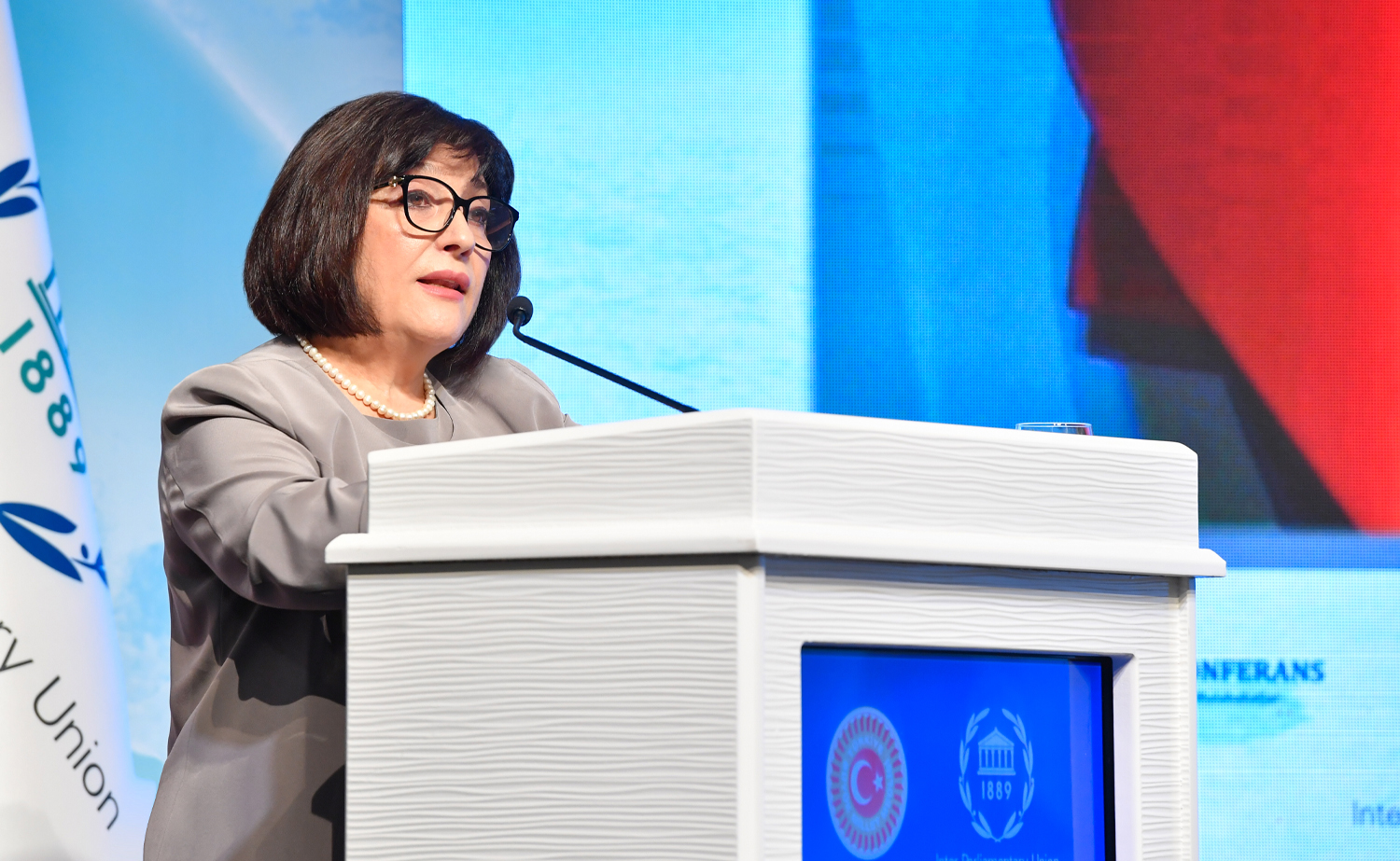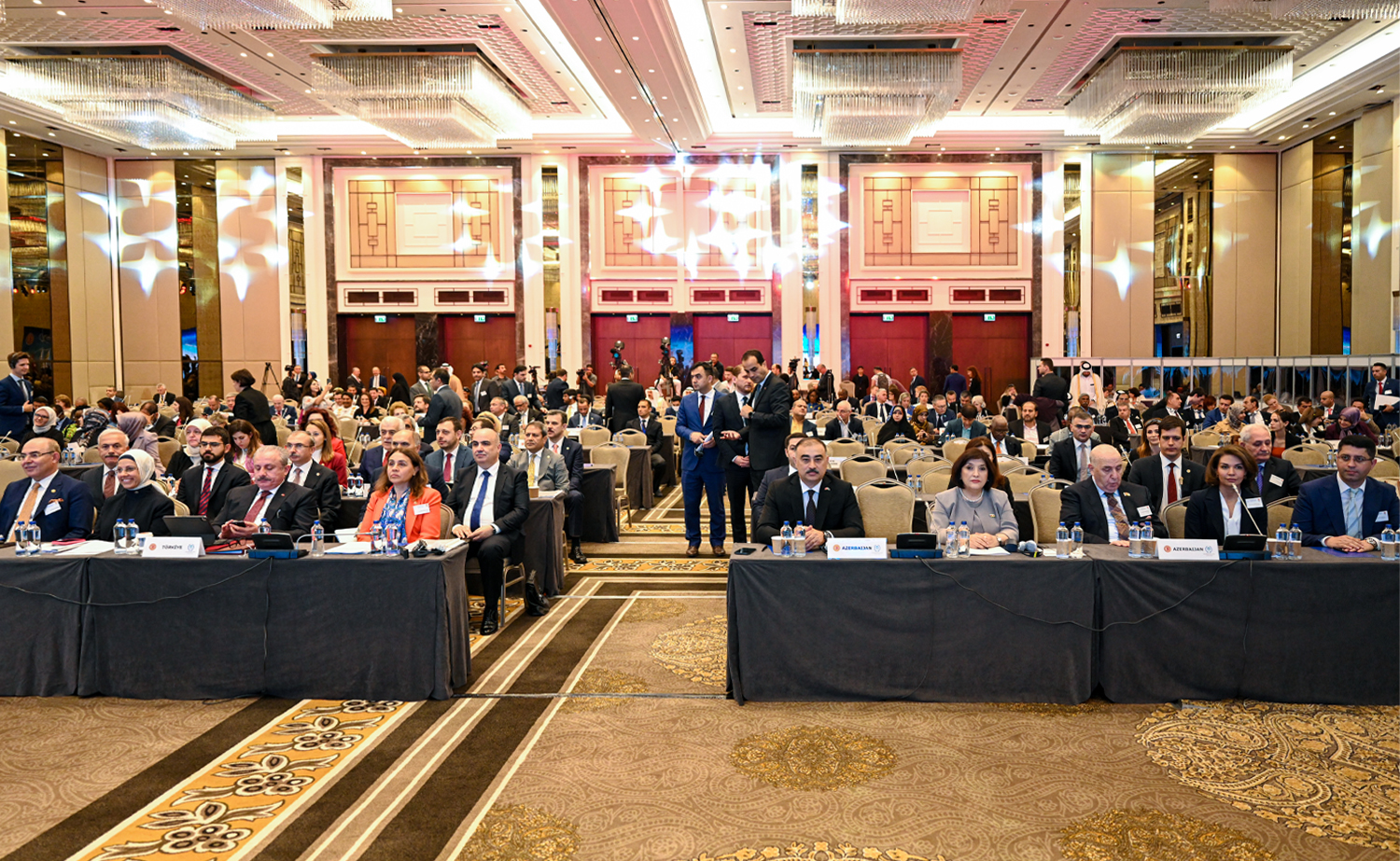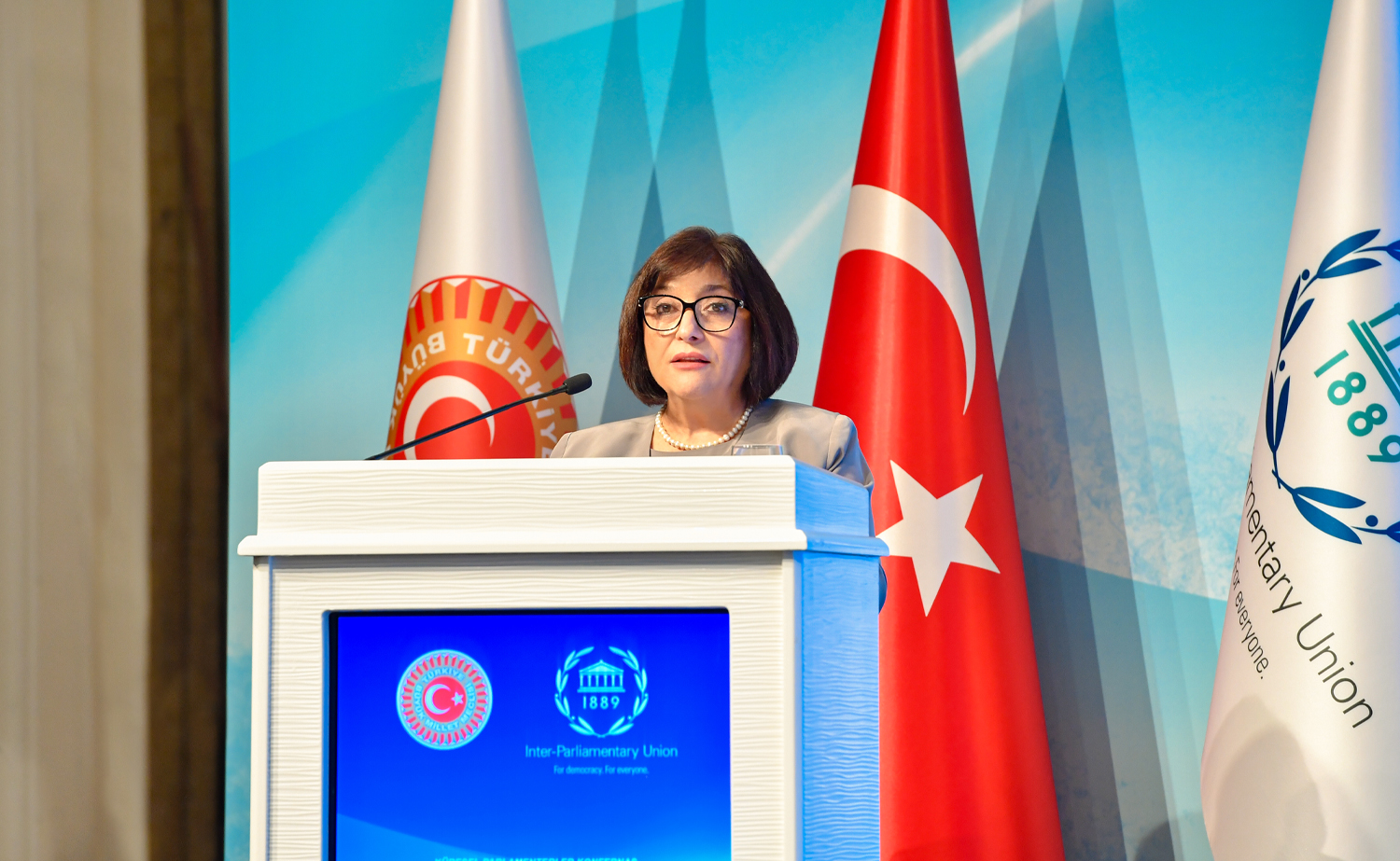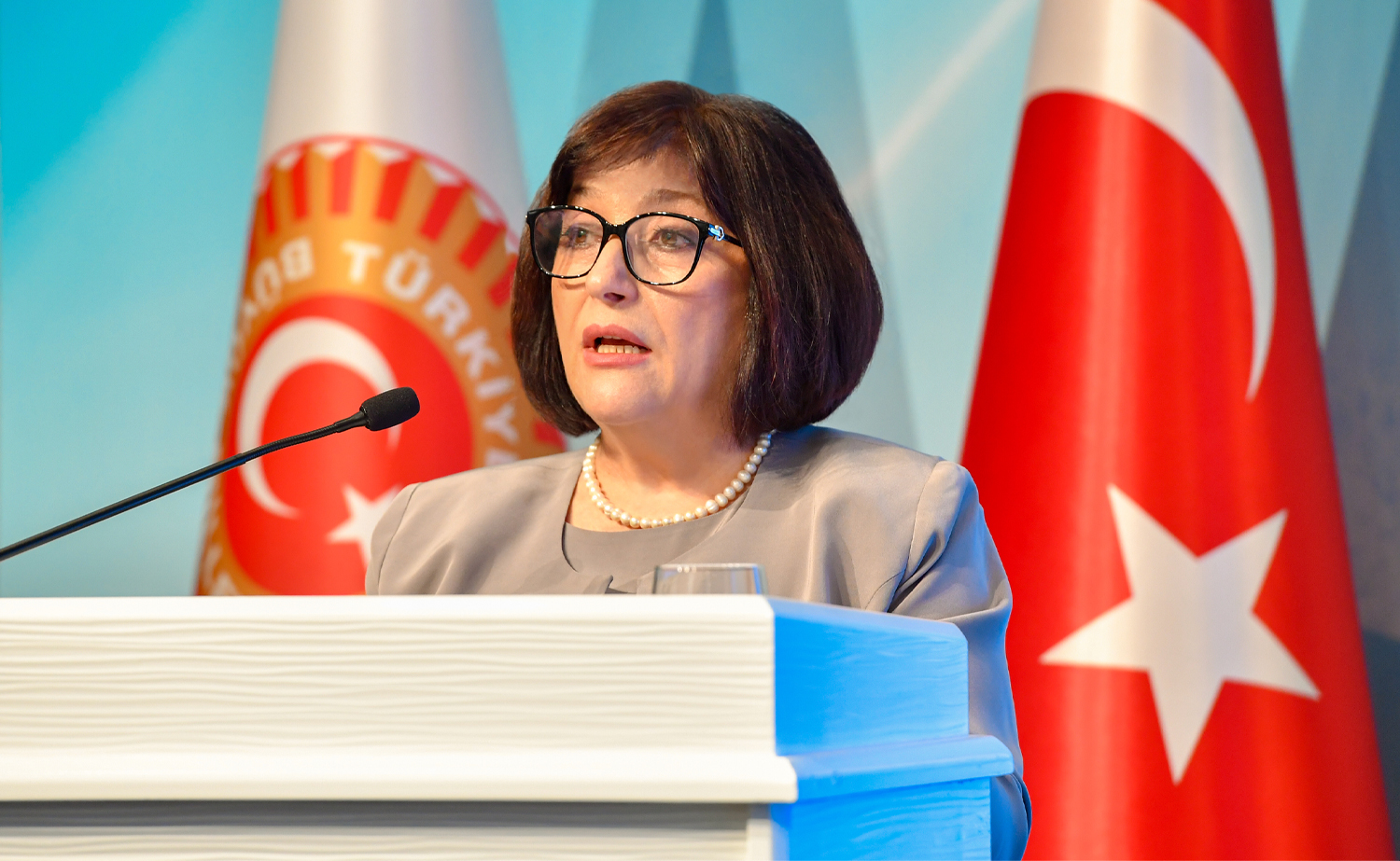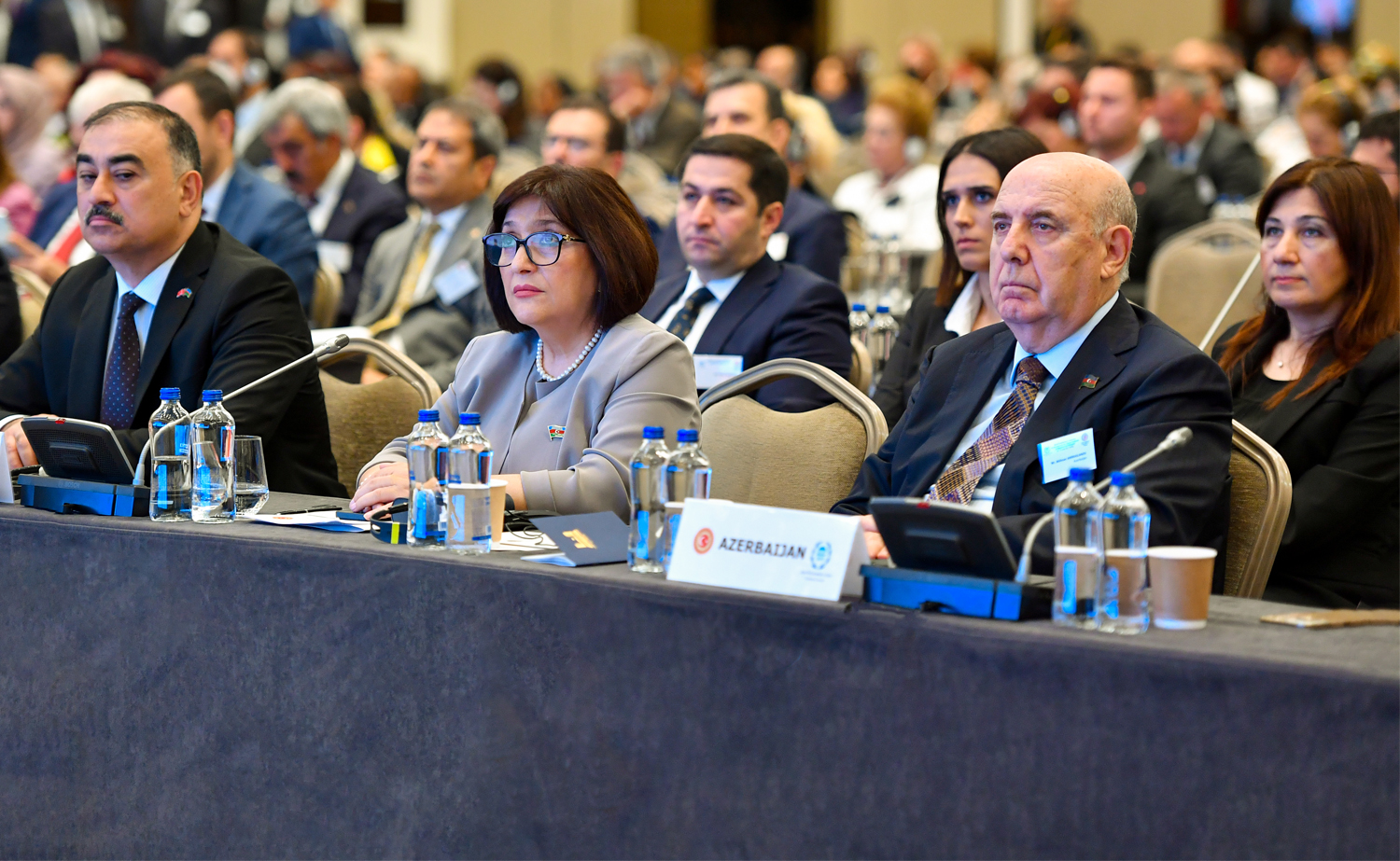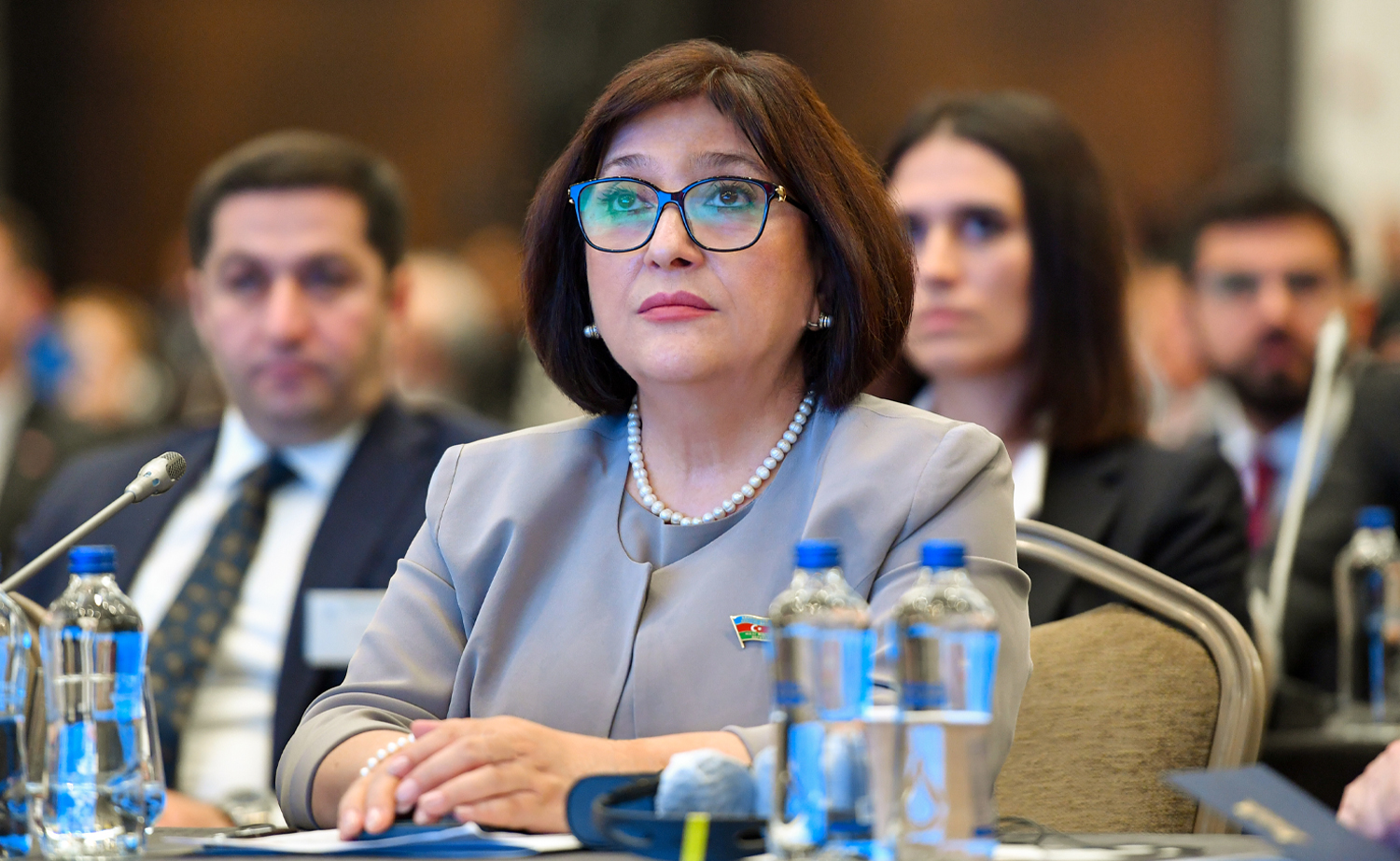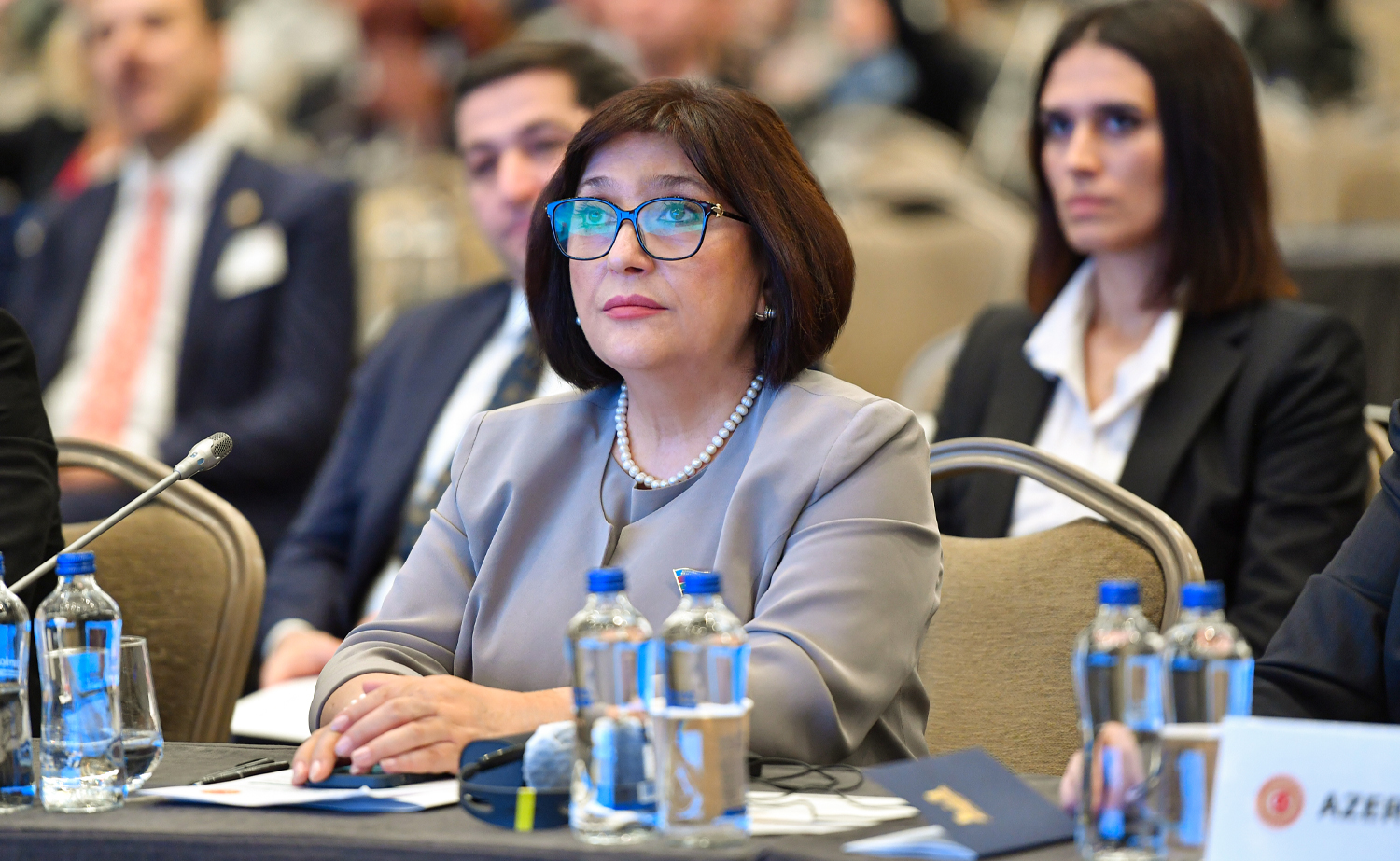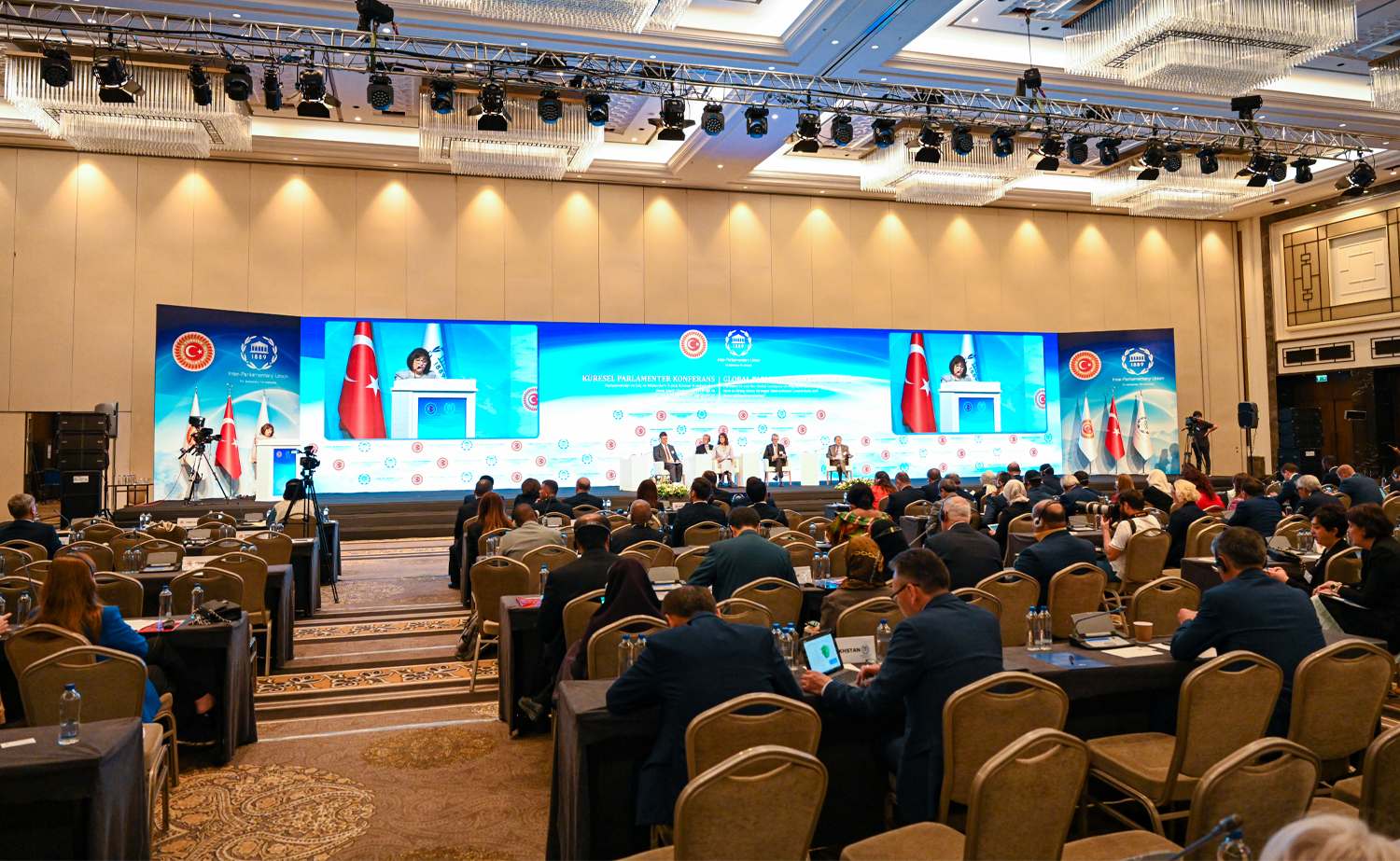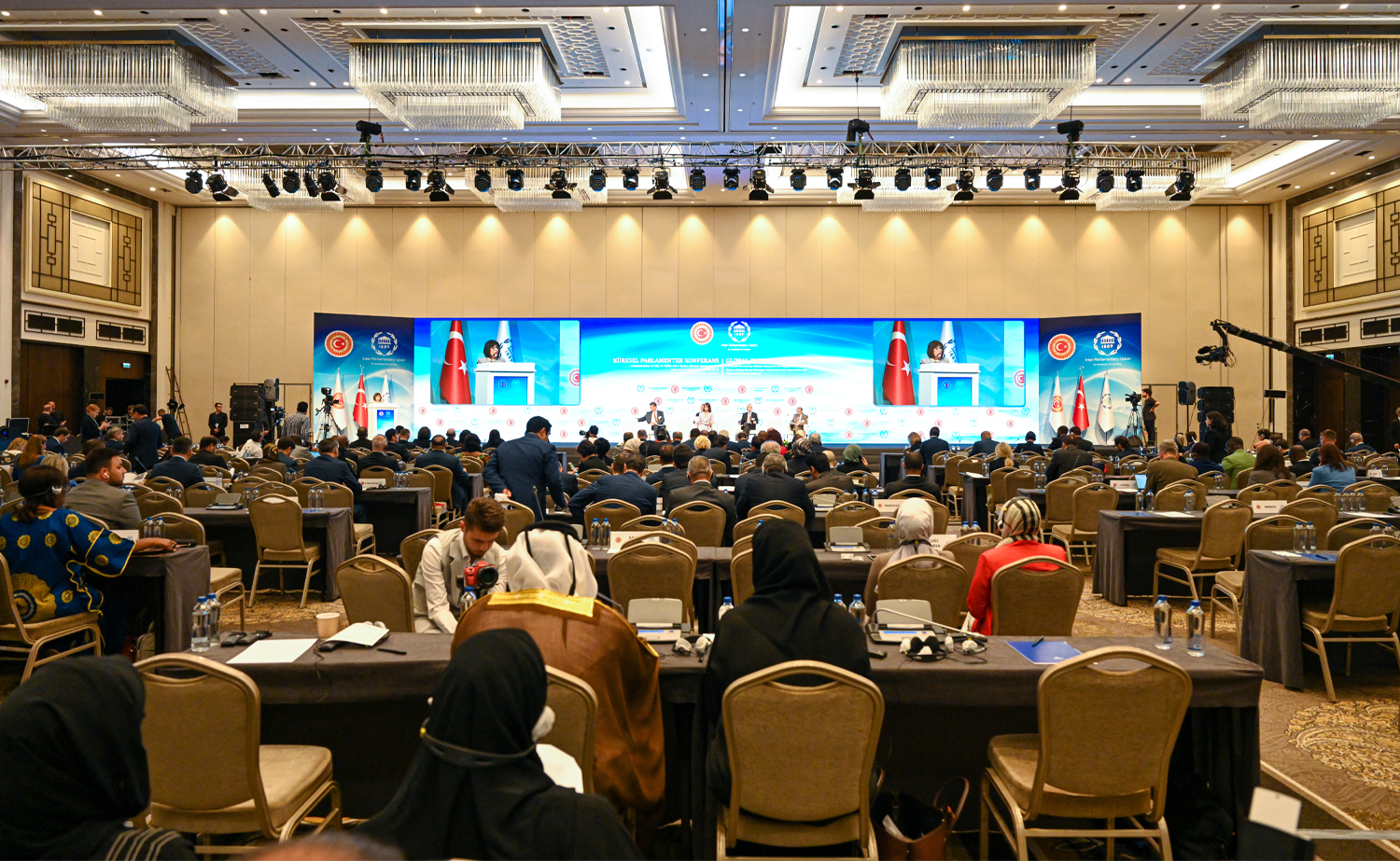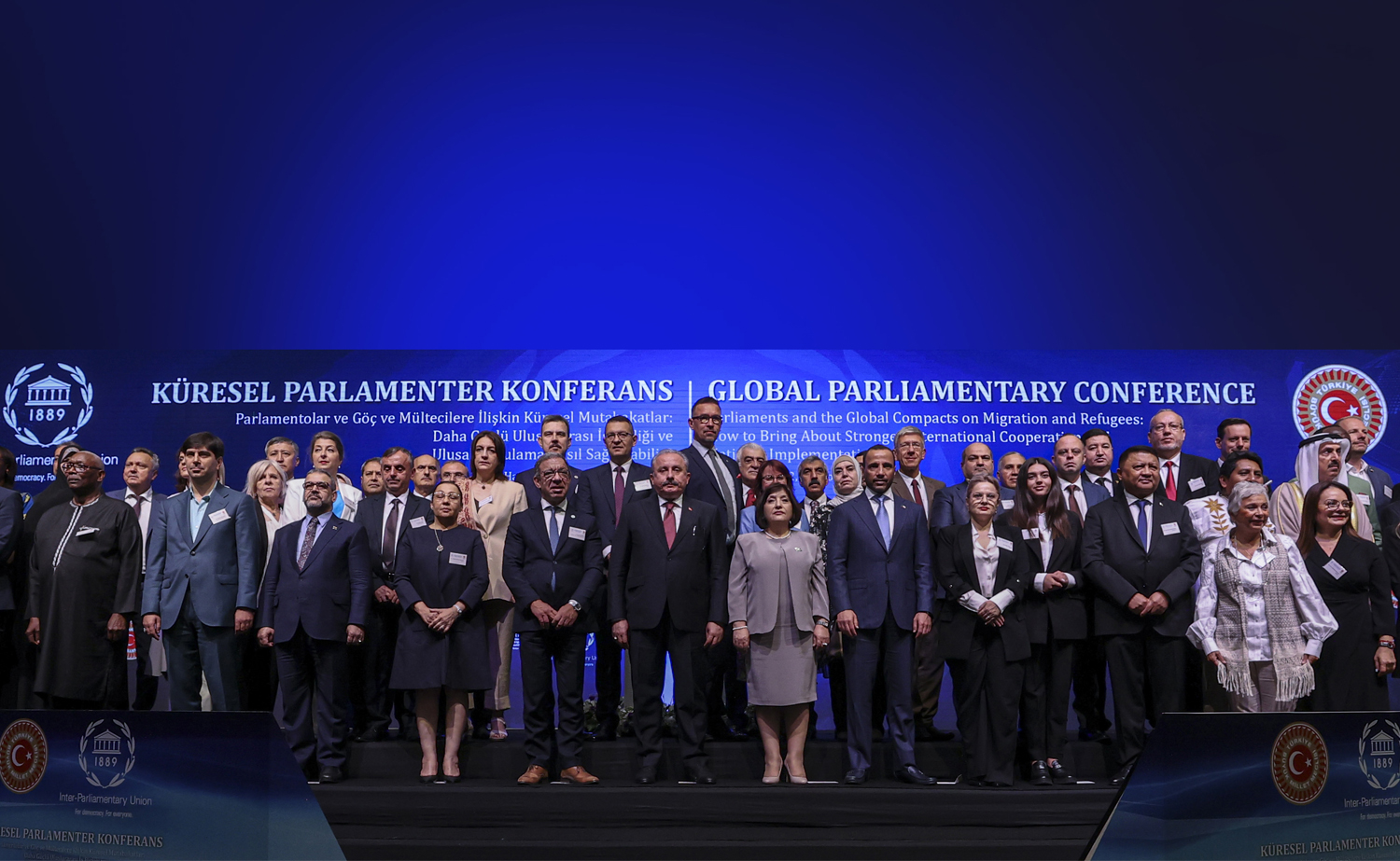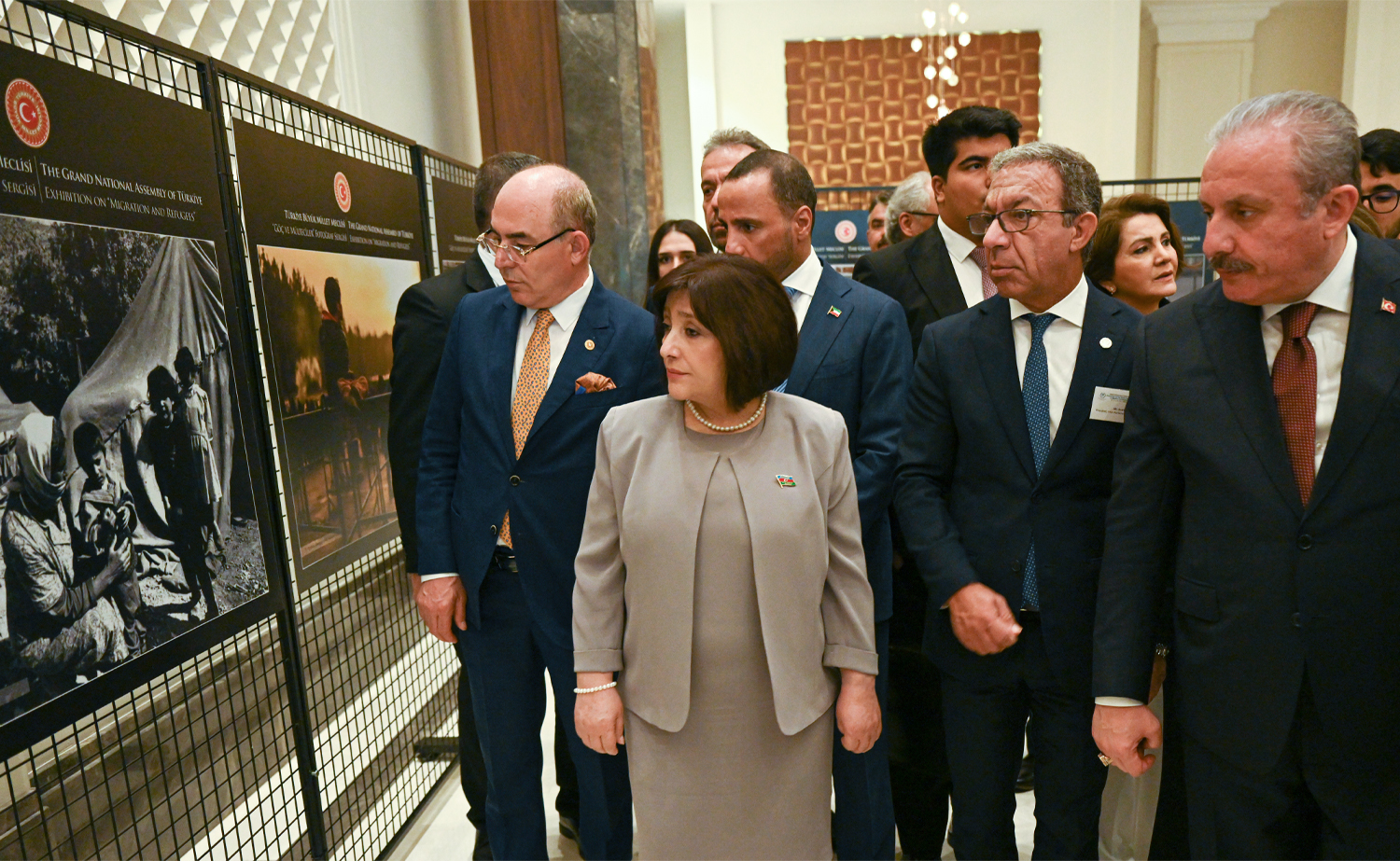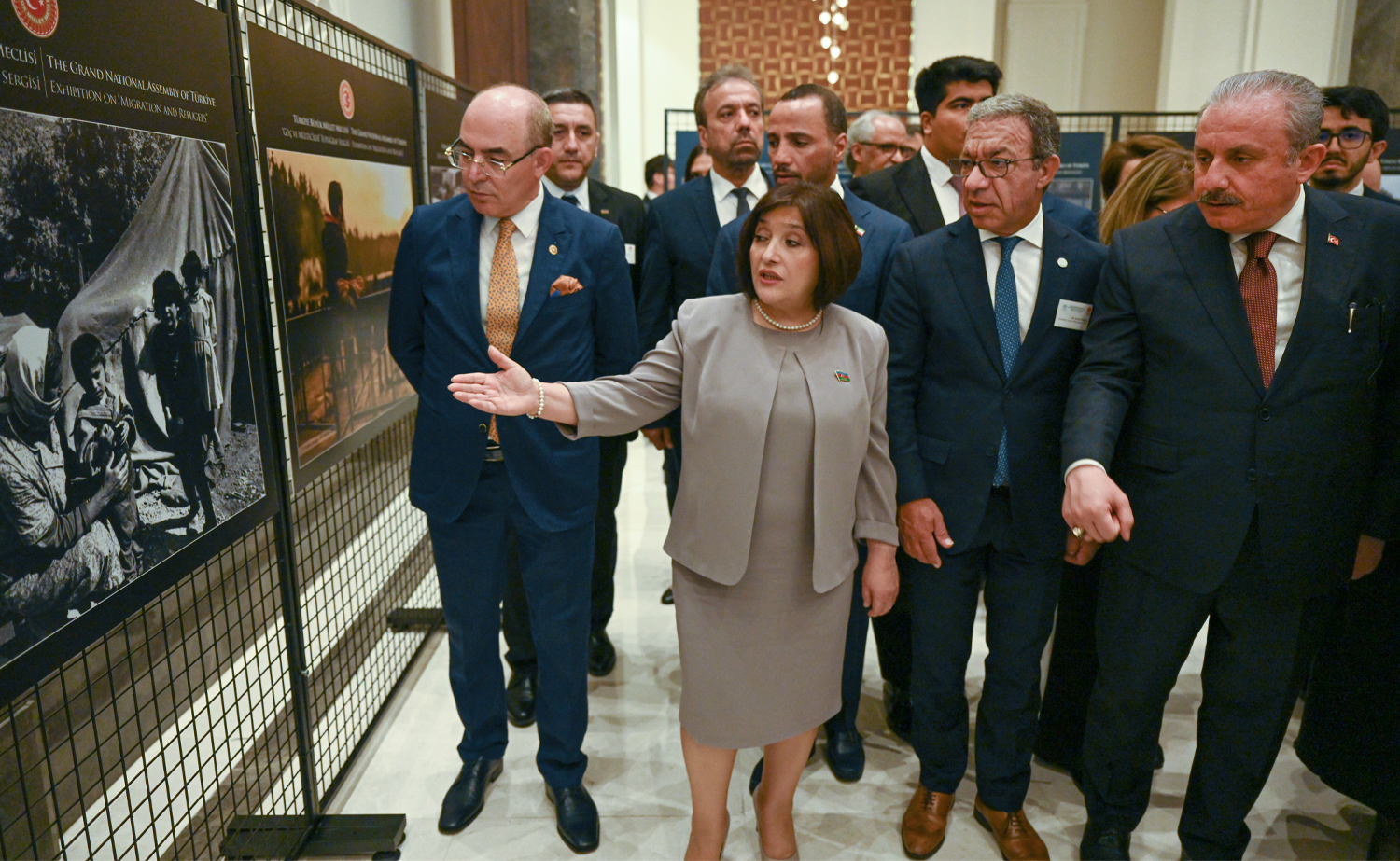Chair of Milli Majlis Sahiba Gafarova Speaks at Global Parliamentary Conference in Istanbul
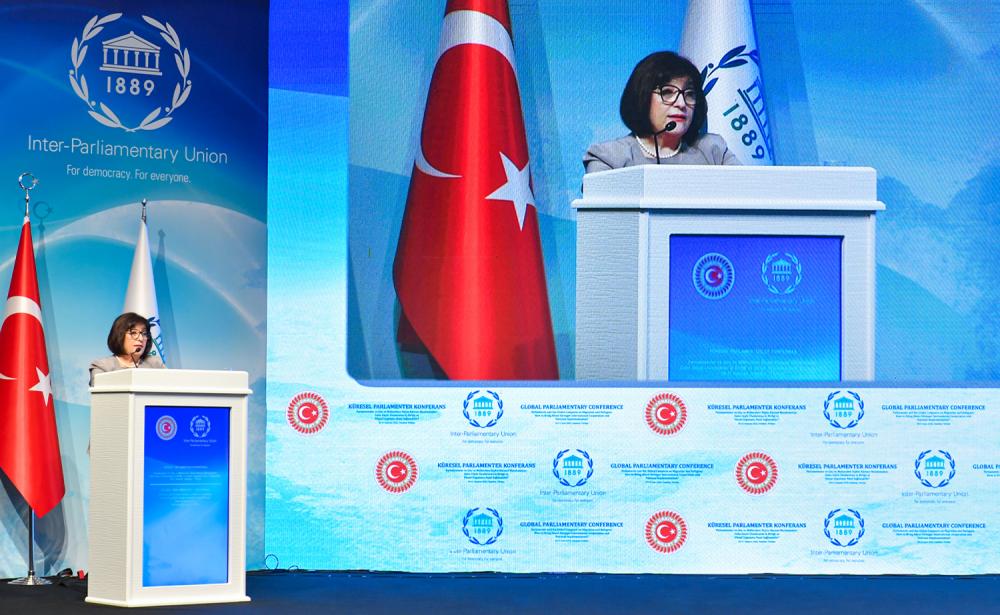
Chair of the Milli Majlis Sahiba Gafarova took part in the Global Parliamentary Conference ‘Parliaments and the Global Compacts on Migration and Refugees: How to bring about stronger international cooperation and national implementation’ in Istanbul on 20 June where the speakers included President of the Inter-Parliamentary Union Duarte Pacheco and Chairman of the Grand National Assembly of Turkey Mustafa Şentop. There was also a video-address to the participants of President Recep Tayyip Erdogan of the Republic of Turkey.
Sahiba Gafarova herself was a keynote speaker on the subject of ‘International governance standards, global compacts and global policy agendas: Targets, commitments, progress and setback in implementation.’
The theme of this conference is really of critical importance while then choice of Turkey as its venue is remarkable in view of the significant role that Turke7y has been playing in managing migration processes these past ten years, Mrs Gafarova was saying. She added that she hoped that discussions within this framework would be useful in terms of addressing migration and refugee issues, which are a dramatic challenge of our time.
Regulation of migration processes is one of the most important issues for many countries in the modern world. Withal, migration is recognised as a progressive process with numerous benefits and opportunities. It is characterised as an invaluable resource for the development and social renewal of any society.
However, the political instabilities, social injustices, difficult economic and environmental conditions and armed conflicts of the last 20 years have aggravated the situation by changing the concept of migration in general. Abandonment of the idea of multiculturalism in certain cases has also had a serious impact on it. Unfortunately, for the last 2 years, COVID-19 pandemic has been another factor detrimental to migration.
According to the Chair of the Milli Majlis, there are many debates and differing views on the very notions of migrants and refugees as well as about the management of the process today. There are still the outstanding questions as to how to ensure that migrants and refugees are more effectively integrated into communities and economies, as well as return back to the countries of origin in a secure and dignified manner.
Sahiba Gafarova also turned her attention to the issues of receiving, accommodating and supporting migrants and refugees, saying that it was imperative that the burden and the responsibility of resolving such issues should be shared. In this connexion, she underlined the place of Turkey amongst the ranks of those countries that are contributing to regulation of migration processes. Turkey has accommodated more than 4 million migrants over the ten years past, and that was not merely due to the high level of economic and social development reached by Turkey – rather, it was also thanks to the high moral pivots of the Turkish society. The international community ought to give the much-deserved praise to the pains taken by Turkey and support them, too, continued the speaker of the Azerbaijani parliament.
The Global Compacts are a call upon states to take a concerted action to advance the rights of migrants and refugees in keeping with cooperation and with reliance upon international law. The Compacts are also proof that no state can alone address these challenges and should unite her efforts with others.
Touching upon the roles of parliaments in managing this process then, Sahiba Gafarova remarked that legislatures could help their respective governments organise all those affairs better still. Holding regular discussions with all the stakeholders, amending and improving migration legislation in line with the provisions of the Compacts can be important in this regard.
Furthermore, Mrs Gafarova told her audience about the relevant work carried out in Azerbaijan and about also the experience that our country had amassed in this field. Effective regulation of migration processes in accordance with international norms and national legislation and protection of migrants’ rights are a priority of the migration policy of Azerbaijan. Located in an important geographical point at the crossroads of East and West, Azerbaijan has always been a place of dynamic migration. The rapid socio-economic development, overseas investments and the implementation of international projects in the energy, transport and other areas have transformed Azerbaijan from a country of origin to a country of transit and destination for migrants. The high level of tolerance in our country is also another important factor influencing the migration process, Sahiba Gafarova went on.
Azerbaijan was one of the first countries to join the Global Compacts: Migration and on Refugees. Also, several measures have been adopted to implement both. Relevant measures have been implemented successfully to provide the compulsory medical insurance of refugees, to ensure their legal labour rights and to extend tuition fees to refugee students studying in higher education institutions.
Azerbaijan was the first in her region to establish the UN Network on Migration at national level, which was done in July 2020. Azerbaijan also joined the Champion Countries initiative, launched in September 2020 under the auspices of the UN Migration Network. In addition to that, our country our country submitted a national voluntary report in 2020 on the implementation of the Global Migration Compact as well as the update of this report in March 2022.
Last month, our country participated in the first-ever International Migration Review Forum as one of the 33 Champion Countries and was also one of the 8 countries to co-chair the four roundtables during the Forum. Another important and clear manifestation of Azerbaijan’s commitment to fostering co-operation and promoting orderly migration is the establishment of a Regional Training Centre on Migration with the help of International Organisation for Migration.
In addition, the Chair of the Milli Majlis told about the victory of Azerbaijan in the Patriotic War of 2020, saying that with that triumph our state had delivered her own lands from the Armenian occupation having lasted for almost thirty years and having made a million people desolate. Our Government had been taking every step to meet all needs of the refugees and the IDPs then despite the heavy social and economic burdens of the occupation that it had had to carry.
The liberation of the occupied lands created new realities and opportunities for peace and prosperity in the region whilst also as ensuring the right of the IDPs to return to their homeland – to Garabagh. So, Azerbaijan is on the verge of dynamic internal migration processes. At the same time, the restoration and reconstruction works carried out in these lands and the steps taken to reintegrate those regions into the overall economy of the country will make Karabakh and Eastern Zangazur an attractive place in terms of tourism, investment and the establishment of new businesses. This, in turn, will lead to the introduction of new approaches to migration management, bringing new dynamics to migration processes in both Azerbaijan and the region, Sahiba Gafarova told the audience in conclusion.
It should be mentioned that there was also an exhibition, held on the margins of the conference and telling about the light of refugees and migrants the world over. Naturally, the conference participants came to the exhibition. Chair of the Milli Majlis Sahiba Gafarova showed them the photographs about the Azerbaijani IDPs driven from their homelands by the Armenian occupation of the Azerbaijani territories in the early 1990s. Mrs Gafarova also told the people at the exhibition about the outcomes of the Armenian occupation, the restoration and rebuilding work that Azerbaijan is furthering in her liberated provinces and the arrangements in place to boost the social protection of the refugees and the internally displaced people.
The Press and Public Relations Department
The Milli Majlis



